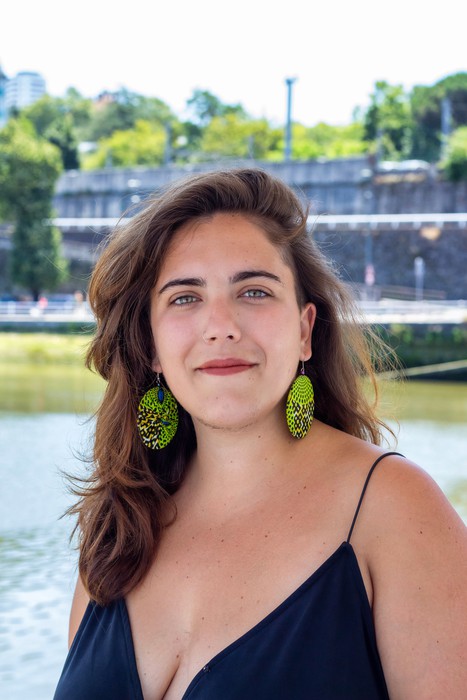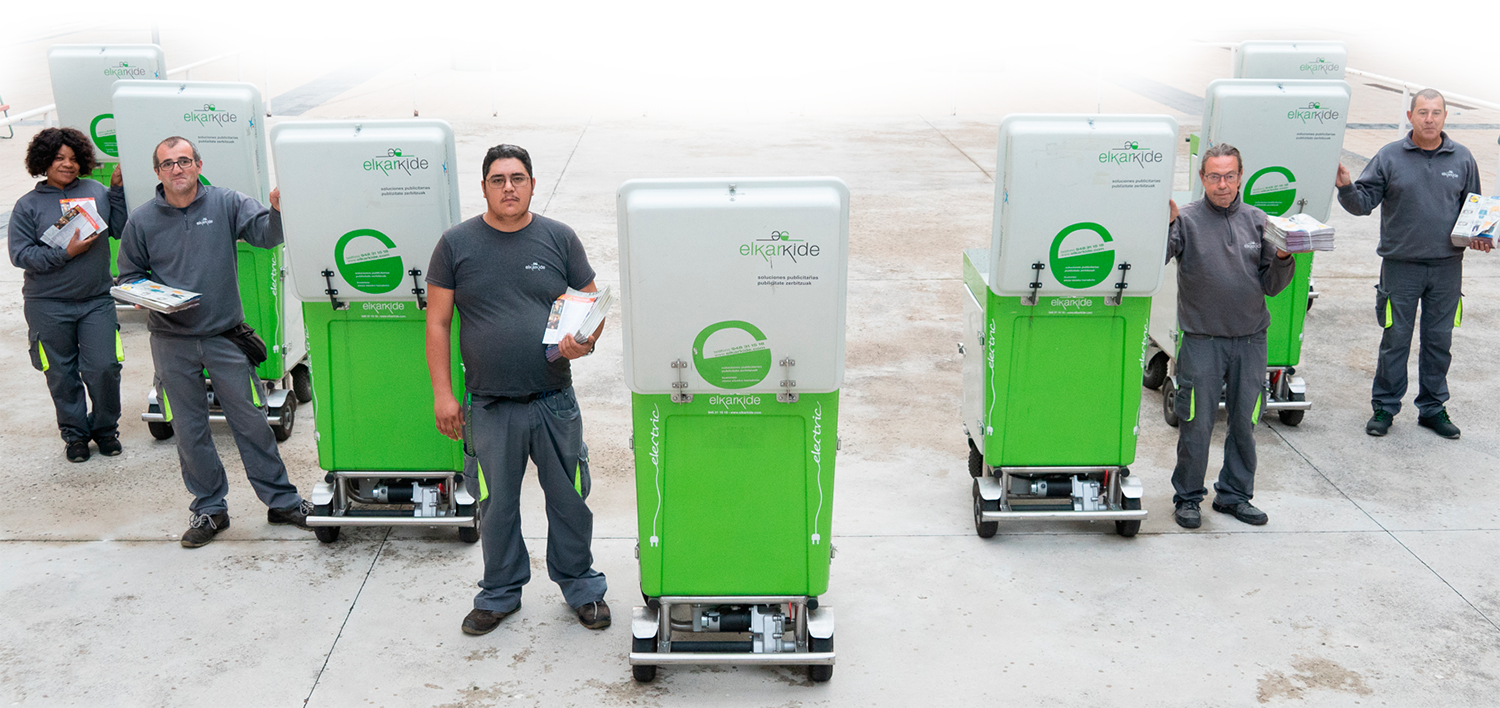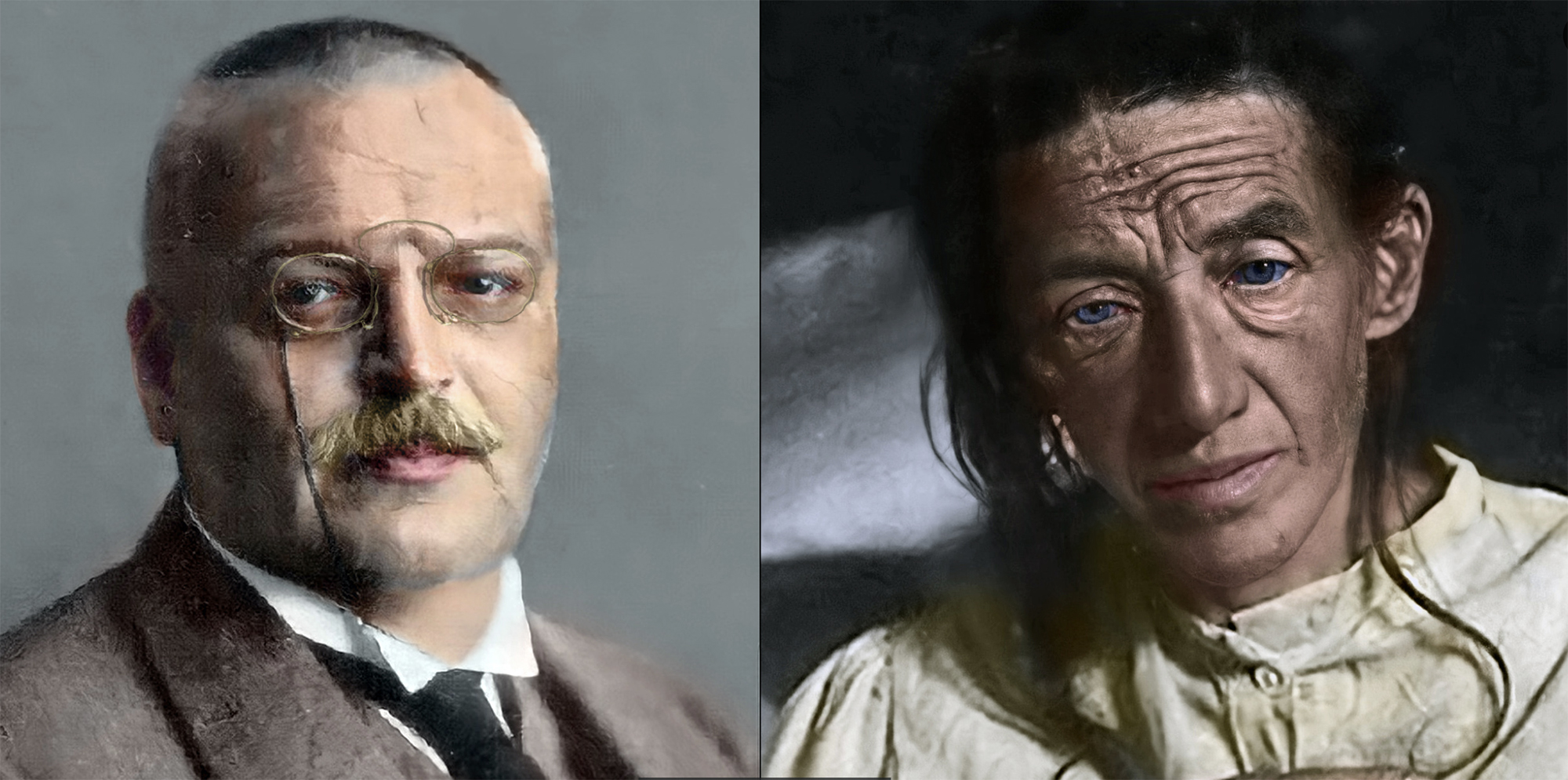"There are a lot of people in this society who can't afford a psychology service."
- Society has experienced an extraordinary situation in the last year. The pandemic has given us the opportunity to get to know ourselves more after three months of lockdown, until the situation for many has become untenable. On the occasion of mental health, we interviewed the psychologist Leire Murguialday.

What did you learn?
I studied the degree in psychology in Donostia-San Sebastián, at the University of the Basque Country. Then I've done a lot of non-formal education on gender, feminism and mental health.
Psychology has many branches, and it's very broad. What do you focus on?
It's hard to say that I focused on just one field, because I've been learning on one side and on the other and I've stayed with the things I like. Now, for example, I'm studying training at Gestalt. It's related to the humanistic realm, and that's what I like. I also work a lot on the psychosocial approach.
You also work on body consciousness. What does this mean?
It is a theory that is cultivated a lot in Latin American feminist currents and compositions and consists in understanding how the pains in the body are applied to us. The evil of individuals, more than a disease, is considered as a process by the theory of body consciousness. After all, we all have processes that are either bad or well and many times they are installed in our bodies, often causing physical illness.
Does body consciousness also have to do with transsexuality?
Also. The gender perspective and the feminist are there, and I am also inclined to take care of it in therapies.
You accompany groups and people.
The coronavirus has made it a little more difficult for us to monitor the groups. However, we believe that the subject in his/her constitution process is not passive and that as an active person, he/she should assume the command of the process. Hence, the potential of the groups, since when you group many individuals or active subjects in the formation processes, a great potential is generated, since each one finds in the other words they cannot put.
What kind of groups are they?
Depending on the situation, they are open or closed workshops. We offer open-ended workshops aimed at self-knowledge or emotional development, but we understand that we must work more specifically with groups in vulnerable situations. If we target women who have suffered violence, they will be women’s groups. Similarly, if we address people who are in migratory processes, they will be migrated. In short, we tend to take care of some profiles.
What is mental health for you?
To live in peace with yourself. Accepting the incongruity, but accepting the evils and deficiencies we have to be able to live peacefully in some way. I think it's not clinical mental health, I see it differently.

Although little by little progress has been made, it is still exceptional for many people to go to the psychologist. What would you say to those people?
I think each person owns his or her recovery process and would not convince anyone to go to the psychologist. Among other things, because you have to be eager and impatient at the same time to be able to receive that support. Also, as you said, more and more people have normalized going to the psychologist as to any other specialist, and we also see it this way, because more and more young people come to ask for help.
Can more be done to normalize this?
For starters, it's a highly privatized classicist service. In fact, that moved us to create something like the Lunar Space. There are a lot of people in this society who cannot afford such a service, and we should all be able to receive such help. On the other hand, organizations should move more to offer more services, both in Osakidetza and in other non-medical organizations. If this issue is taken from another point of view, other social entities could also offer this service to another public, but no money is spent.
Does public psychological and psychiatric care have shortcomings? Is there anything to improve?
I don't know, I've never been. However, a great deal of time and money must be spent to get to work in public services, it is very difficult. In public care, you don't have the freedom you can have in a private clinic, because you're under a hierarchy. It is also conditioned from a fixed point of view. However, I do not know him very well because he has never attracted me.
Several studies have confirmed that women have more diagnoses of depression than men, according to the Foral Police. Do you agree?
If there's data like that, I'd think.
Why do you think that's right?
In my opinion, the male chauvinist system facilitates the diagnosis of depression in women and, in addition, in a very widespread way. In fact, sometimes there are diseases that go beyond depression, but by not looking deeper, they're diagnosed with depression and it's already.
Something similar happens with people with eating disorders, mostly young girls.
The heteropatriarchal system reappears. I believe that social pressure, aesthetic pressure and role playing is a scourge that affects the system itself and, of course, does not occur in all societies. When we are young we are not yet built as people, and if they hinder us in that construction process, they can have consequences of this kind.
Confinement and security measures have drastically reduced social life and have led many people to loneliness, without any kind of social relationship. How has it influenced mental health?
The lockdown has been very hard for many people. In addition, there have been people living at home in precarious conditions: These are small houses where 16 people live, women living with the aggressor or a young man who cannot come out of the closet and live with their parents. With the measures that have been taken after leaving the lockdown we have been severely constrained by social capacities and fear has also grown. Consequently, in the twenty-first century we have many more ‘social disabled’ and under the excuse of fear that social disability has grown. We have lived for months in fear of the police, the virus and the way others will look at us.

IN DEPTH
“We also want to offer other workshops on self-knowledge and emotional and personal development”
You just created a holistic space called Lunar Space on Hernani, along with other peers. What does it consist of?
At the moment we are a group, although we intend to have a place of our own, we still do not have physical space. The objective is to give a place to mental health from an intercultural and transfeminist perspective. In this space we have gathered five people with different specialties and in addition to providing psychotherapies, we want to offer workshops of self-knowledge and emotional and personal development.
Is it different from other psychology centers?
Yes, especially because of our way of understanding health. We don't think that the head and the body are separated, as cyclical people, we think we go through a lot of emotional processes, and that's what we've made clear from the beginning. In addition, this space is made up of five feminist women with different personal backgrounds, and that also seems to me to be a great potential. The services we offer in the Lunar Space will also be broad: we will move away from classical psychological techniques and use artistic techniques such as artetherapy, yoga or photography.
What is the work you do there?
At the moment we all do everything. We do psychotherapy, we get and dynamize workshops, and at the same time we carry out all the work involved in creating our company: marketing, advertising, telephone care…
Frankfurt, Germany, 1901. The psychiatrist and neurologist Alois Alzheimer first saw the patient Auguste Deter. The 51 year old German housewife was a strange case. "The patient is sitting and seems unprotected," Alzheimer said: "What's your name? Auguste. What is your husband's... [+]
“Houston, we have a problem!”
Well, to say that we have a single problem, as things are, can be a temerity, but this time I want to focus on an issue that concerns us and affects us internally, mental health.
Historically, suffering has had a profound meaning and meaning... [+]
Last summer I taught a course on the prevention of neurosis as part of the Hik Hasi educational meetings. Many people signed up because the title was attractive, the safest, because it implied that mental health (or lack of health) is not something random, but something that can... [+]
2010ean Albert Piquerrek telekomunikazio enpresa batean egiten zuen lan, presio handiko lan eremu oso lehiakorrean. "Gauza asko ondoeza eragiten hasi zitzaizkidan, eta egun batean dena lehertu zen eta lana utzi nuen. Nire bizitza pixka bat gelditu egin zen". Piquerrek... [+]





















